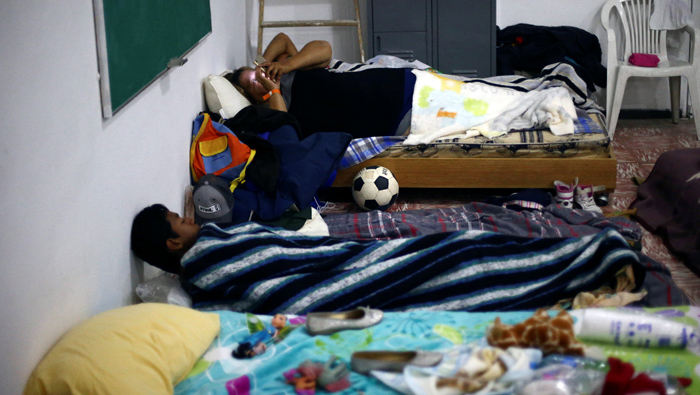
Mexico City: A "caravan" of Central American migrants pressed on through Mexico on Friday, greatly diminished in size a day after hundreds of exhausted members left a field where they had been stranded all week, pressured by government officials who have been under fire from US President Donald Trump. About 800 people were left in the caravan, said Irineo Mujica, director of Pueblo Sin Fronteras, a group that has since 2010 been staging annual caravans to ensure safe passage for migrants and draw attention to their rights. This year's caravan had about 1,500 migrants at its peak, but people began to leave the group after immigration authorities stalled it in the southern town of Matias Romero and screened men, women, and children following pressure from Trump. Organizers later decided to end the caravan in Mexico City instead of the US border as had previously been intended. Pueblo Sin Fronteras director Mujica told Mexican radio from Campo Nuevo in the eastern state of Veracruz that he was with about 150 migrants from the caravan who were waiting to board a train on Friday. Another 600 migrants, he said, mostly from El Salvador, Guatemala and Honduras, had already made it to the central city of Puebla for a conference with U.S. and Mexican immigration lawyers who were due to give instructions on how to seek asylum. Earlier, he had told Reuters the group was struggling to find transportation for the migrants. By Thursday evening, most of the women and children had boarded buses, leaving the park which since Sunday had been littered with piles of clothes and makeshift tents. The men, packs on their backs and lacking bus fare, prepared to board a freight train or to walk 24 hours to the next city. Though not all of the migrants in the caravan who spoke with Reuters said they wanted asylum in the United States or Mexico, at least a dozen described facing lethal threats from gangs or even their own authorities. "Even in the night, it's not hot, but the cold assaults you," Carlos Francisco Portillo, a former soldier from El Salvador, said of the long walk. "You can't advance much," added another migrant from Nicaragua. The train was barely safer, added Portillo, unless you strapped yourself to the roof for sleep to avoid falling off. His choice was to either take the freight train, walk all night, or head home to near certain death from a gang.